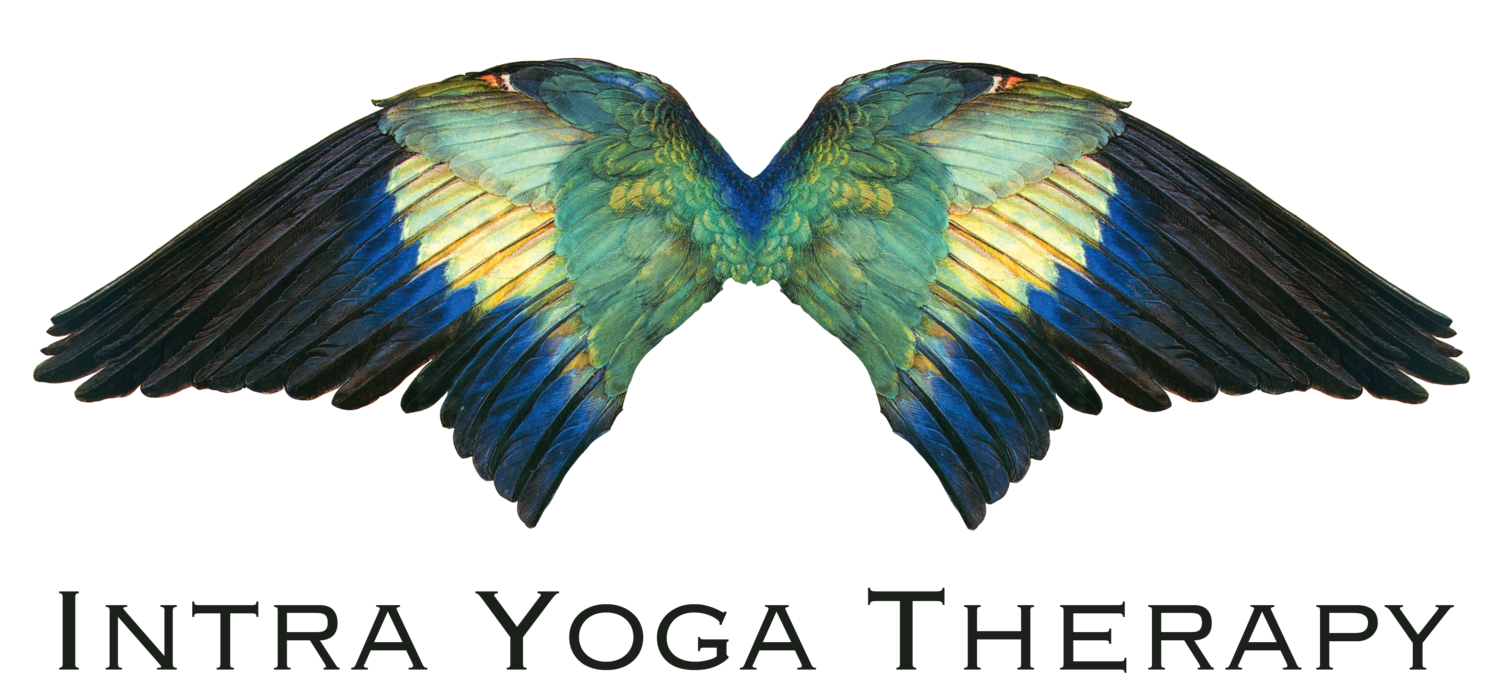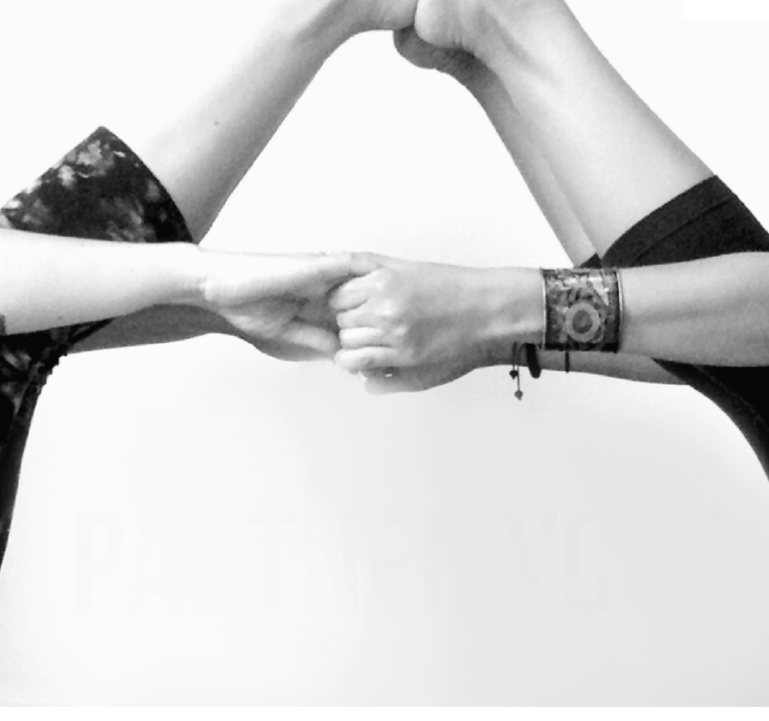A Body Wisdom Story by Elizabeth Gilbert
Many of my yoga therapy clients are dealing with chronic pain/discomfort. This is an awesome story about changing one's relationship to that pain/discomfort. There are no quick fixes, no easy diagnoses for so much of our body stuff. But so often we miss a crucial part of the process -- asking to understand what our body wants from us. And examining our belief system around our body. And then adjusting accordingly. Please enjoy author Elizabeth Gilbert's amazing story of mind-body connection. #bodywisdom
"PERHAPS I AM STRONGER THAN I THINK" — Thomas Merton
Dear Friends -
I've spent the last eleven days hiking in the Italian Alps.
And that is a sentence that — 15 years ago — I would never have imagined myself ever writing.
I used to have a bad knee. It started during my divorce, when every part of me was falling apart — head to toe, inside and out. But my left knee was the worst of it. I twisted it one day, and it was never the same again. I couldn't even walk up a flight of stairs without pain. At the time I went to see a doctor about it, who said simply, "Well, that's why they call it getting older, and not getting younger." (Thanks, doc.)
For years, I babied my knee. I identified myself as someone whose knees were "bad", the way certain dogs and neighborhoods are called "bad". If I took a yoga class, and the teacher asked if anyone had any physical limitations, I dutifully raised my hand and explained that I had a bad knee. I was given special movements, and told to be extra careful. Every new doctor was told about my bad knee. My friends knew about my bad knee. I iced it and heated it and put braces on it and took tons of ibuprofen and kept my range of motion limited because of it. I visited all kinds of professionals — traditional and alternative, alike.
But my knee never stopped hurting.
Untill 5 years ago.
Now listen — before I go on here, please don't do anything stupid to your body because of what I'm about to say, OK? I'm not a medical professional, and you must be a wise steward of your own lovely physical being.
But here is what happened to me.
One day — and it did happen suddenly, one day — about five years ago, I asked my knee what it wanted from me.
I literally spoke to it. I got very quiet, and very sleepy, and I said, "Tell me what you need from me, dear knee. I'm listening. I''ll do whatever you say. Surgery? A replacement? More gentle care? More acupunture? A change of diet? Reiki? Just give me the word."
Then I got very quiet, and my knee told me what it wanted. I heard the answer in the depths of my mind, as clear as day. It said, "GO FASTER."
Go faster, said my knee. Go running. Go climbing. Go dancing. Use me. Jump up and down on me. I am a KNEE. There is absolutely nothing wrong with me. I am wonderously designed, said my knee. I am not a weak point, but a strong one. I am part of your body, and I want to be used. I am not a symbol of your divorce. I am not a sign of aging. I am not a problem. Don't baby me. I don't want to spend the rest of my life being treated like a Victorian invalid lady who has to take to her bed because of her fainting spells. I am not weak. Stop this. Please, please, please — said my "bad" knee to me — please stop using me as an expression of your weakness, fear, and emotional fragility. Please talk to your therapist about whatever troubles are ongoing in your mind, but don't blame for everything. Please just trust me. Please just use me as I was designed. Use me as a freaking KNEE.
The next day — hand to God — I went running for three miles and I was fine. I've been fine ever since.
Again — PLEASE don't go and do anything physically stupid to yourselves because of this story. I can barely explain it myself — how suddenly my "bad" knee was no longer bad. I have never been able to speak to a body part so clearly again, and I know it seems crazy that it happened at all.
But it happened.
There was pain (remember — that was my "divorce knee") and then I was finally ready to put the pain away, and to stop using my knee as a pain-memorial.
All I know is this — that pain is a complicated and multi-layered force. Nobody experiences pain the same way, which is why it's so difficult to treat. Some of our pain abides in the body, and some of it abides in the mind, and some of it abides in our histories. As pain moves through us, it passes through what scientists call "amplification centers" in our beings. Our emotions are amplification centers. our fear is an amplifaction center. Our imaginations are amplification centers. Our anger, too. All of these parts of ourselves amplify the pain in our mind, and sometimes commit to that pain fully — forever.
I had a friend once who injured her back during a hard time in her life, and it didn't recover for years. One day, a doctor finally asked her, "What was the first thing you thought, when you felt your back go out?"
My friend said, "I thought, 'This is going to hurt me for the rest of my life''.
The doctor, very kindly, said, "Maybe it's time for you to stop thinking that."
Her healing began there.
I believe that I did hurt my knee 15 years ago — but mildly, temporarily, and not in a way that it needed to cause me pain for a decade. I believe that my "bad" knee lived on inside my mind, not in my knee itself. When pain abides in the mind, it does not mean you are crazy, or that the pain is any less "real". Trust me, my knee HURT. It just means that pain is living on within your body because — for some reason — it must. Because you are not done suffering. Because I was in heart-pain for ten years, and that pain needed a location. My poor knee took the pain for me. Until it didn't want to any more.
Anyhow — what if you are stronger than you think?
I am all for people treating themselves with gentle loving care (and maybe part of my recovery from emotional pain was all about focusing on treating my knee like a poor, suffering baby — so that I could take care of myself with kindness at some level. Maybe that helped me to heal my heart.) But what if there are parts of your body that don't want to be babied foever?
What if every single part of us longs to be USED?
What if our bodies long to be freed from the past, so that they can move as they were designed to move?
What if our hearts long to love?
What if our minds long to be creative?
What if our spirits just want everything to be forgiven?
What if your knee wants you to climb a mountain, to show you how powerful you actually are?
Wouldn't that be crazy?
Wouldn't that be freaking wild?
Wouldn't that fill you with so much joy, you feel that your heart may burst from it?
ONWARD,
Liz Gilbert
(as shared on her Facebook page 8/14/15)








